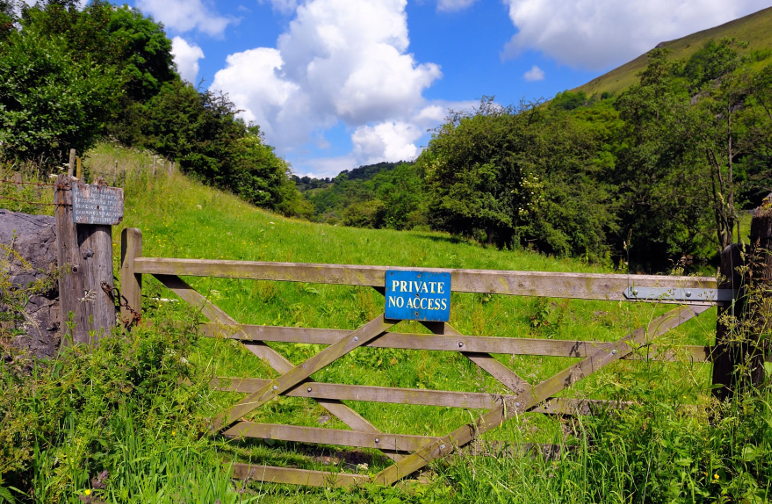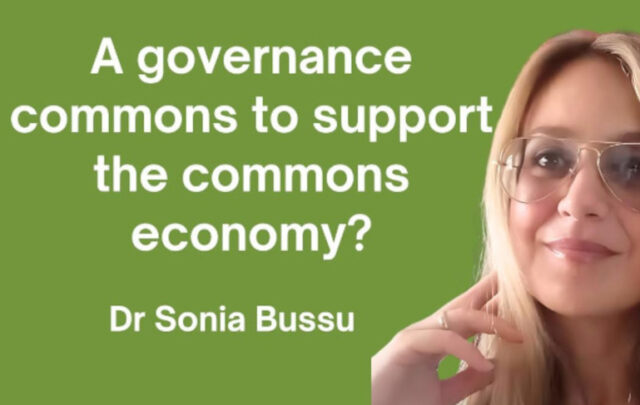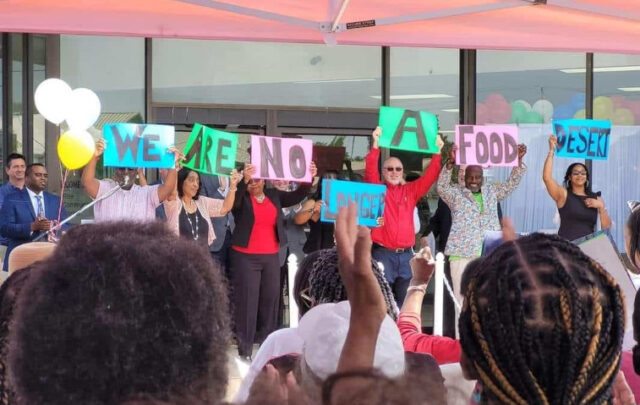What is the most neglected issue in British politics? I would say land. Literally and metaphorically, land underlies our lives, but its ownership and control have been captured by a tiny number of people. The results include soaring inequality and exclusion; the massive cost of renting or buying a decent home; the collapse of wildlife and ecosystems; repeated financial crises; and the loss of public space. Yet for 70 years this crucial issue has scarcely featured in political discussions.
Today, I hope, this changes, with the publication of the report to the Labour party – Land for the Many – that I’ve written with six experts in the field. Our aim is to put this neglected issue where it belongs: at the heart of political debate and discussion.
Since 1995, land values in this country have risen by 412%. Land now accounts for an astonishing 51% of the UK’s net worth. Why? In large part because successive governments have used tax exemptions and other advantages to turn the ground beneath our feet into a speculative money machine. A report published this week by Tax Justice UK reveals that, through owning agricultural land, 261 rich families escaped £208m in inheritance tax in 2015-16. Because farmland is used as a tax shelter, farmers are being priced out. In 2011, farmers bought 60% of the land that was on the market; within six years this had fallen to 40%.
Because we hear so little about the underlying issues, we blame the wrong causes for the cost and scarcity of housing: immigration, population growth, the green belt, red tape. In reality, the power of landowners and building companies, their tax and financial advantages and the vast shift in bank lending towards the housing sector have inflated prices so much that even a massive housebuilding programme could not counteract them.
The same forces are responsible for the loss of public space in cities, a right to roam that covers only 10% of the land, the lack of provision for allotments and of opportunities for new farmers, and the wholesale destruction of the living world. Our report aims to confront these structural forces and take back control of the fabric of the nation.
A Labour government should replace council tax with a progressive property tax, payable by owners, not tenants. Empty homes should automatically be taxed at a higher rate. Inheritance tax should be replaced with a lifetime gifts tax levied on the recipient. Capital gains tax on second homes and investment properties should match or exceed the rates of income tax. Business rates should be replaced with a land value tax, based on rental value. A 15% offshore tax should be levied on properties owned through tax havens.
To democratise development and planning, we want to create new public development corporations. Alongside local authorities, they would assemble the land needed for affordable homes and new communities. Builders would have to compete on quality, rather than by amassing land banks. These public corporations would use compulsory purchase to buy land at agricultural prices, rather than having to pay through the nose for the uplift created by planning permission. This could reduce the price of affordable homes in the south-east by nearly 50%.
We propose a community participation agency, to help people, rather than big companies, become the driving force in creating local plans and influencing major infrastructure. To ensure a wide range of voices is heard, we suggest a form of jury service for plan-making. To represent children and the unborn, we would like every local authority to appoint a future generations champion.
Councils should have new duties to create parks, urban green spaces, wildlife refuges and public amenities. We propose a new definition of public space, granting citizens a legal right to use it and overturning the power of private landowners in cities to stifle leisure, cultural events and protest.
We propose much tighter rent and eviction controls, and an ambitious social housebuilding programme. We also want to create new opportunities for people to design and build their own homes, supported by a community right to buy of the kind that Scotland enjoys. Compulsory sale orders should be used to bring vacant and derelict land on to the market, and community groups should have first rights to buy it.
To help stabilise land prices and make homes more affordable, we propose a new body, called the Common Ground Trust. When people can’t afford to buy a home, they can ask the trust to purchase the land that underlies it, while they pay only for the bricks and mortar (about 30% of the cost). They then pay the trust a land rent. Their overall housing costs are reduced, while the trust gradually accumulates a pool of land that acts as a buffer against speculation, and creates common ownership on a large scale.
We call for a right to roam across all uncultivated land and waterways (except gardens and similar limitations). We want to change the Allotments Act, to ensure that no one needs wait for a plot for more than a year. We would like to use part of the Land Registry’s vast surplus to help community land trusts buy rural land for farming, forestry, conservation and rewilding. We would like a new English land commission to decide whether to make major farming and forestry decisions subject to planning permission, to help arrest the environmental crisis. And we want to transform the public’s right to know, by ensuring that all information about land ownership, subsidies and planning is published freely as open data.
These proposals, we hope, will make the UK a more equal, inclusive and generous-spirited nation, characterised not by private enclosure and public squalor, but by private sufficiency and public luxury. Our land should work for the many, not just the few.





